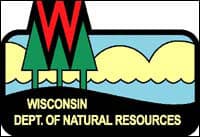Public Asked to Participate in Two Surveys on Deer Management in Wisconsin
OutdoorHub 03.20.13

Providing valuable input and shaping decisions on the future of deer management in Wisconsin is not just reserved for deer hunters. State wildlife officials want to hear from anyone interested in deer, from farmers to landowners to wildlife watchers.
The Department of Natural Resources has launched two new surveys to collect feedback from what is hoped to be a diverse set of interests representing hunters and non-hunters.
One survey, called the Deer Management Unit Survey will provide the valuable local perspective the DNR and the Natural Resources Board will consider for the 2013 hunting seasons. Survey participants will be asked to choose their preferred deer management unit for which they will provide input. It can be the unit the participant hunts in, lives in or is the most familiar with.
The survey asks whether the respondent hunts and if so, by which methods and on private land, public land or both and the type of deer the responded is interested in harvesting. Additional topics include:
- past involvement with deer management efforts;
- perception of the deer population in the unit and whether there have been more or fewer deer in recent years;
- accuracy of the DNR population estimate for the unit; how much importance should be assigned to things like agricultural and forestry wildlife damage, vehicle-deer collisions, hunter satisfaction and other topics;
- whether permit levels for the unit are too high, too low or acceptable levels; and
- what other information or information gathering tools the respondent would be interested in having the DNR provide.
The second survey, called the Deer Trustee Implementation Survey, focuses on broader long-term deer management in Wisconsin and ways that it can be enhanced.
This survey asks for county of residence, landowner status, interest in white-tailed deer management, and whether or not the respondent hunts. The survey also asks about:
- interest in a Deer Management Assistance Program that would provide professional assistance for managing deer on their land;
- the importance of a variety of impacts the state’s deer herd has on other resources
- issues identified in the Deer Trustee’s final report on actions Wisconsin should take to establish regulations and season structures, such as combining DMUs, managing by county and limiting the numbers of antlerless permits available;
- opinions on baiting and feeding deer and its impact on deer behavior and disease transmission;
- opinions on deer herd health and chronic wasting disease and whether and if so how the state should proceed with efforts to control the spread of the disease.
Additionally, opportunities to participate in meetings
A series of 34 public meetings to gather public input on what people would like to see for a 2013 deer season structure began around the state this week and run through the end of the month. Local wildlife biologists will be on hand to answer questions and talk about the current status of the local deer herd. They will listen to ideas and observations, and discuss possible strategies to manage the herd.
To find a meeting location and time [PDF], visit dnr.wi.gov and search keywords “Deer Hunter Forum.”
The public also has an opportunity to play an active role in shaping the long-term future of deer management in Wisconsin by participating in a series of Wisconsin’s Deer Trustee Report implementation meetings. The report contains 62 recommendations assembled by James Kroll, along with Gary Alt and David Guynn, who were commissioned by the Gov. Scott Walker as the state’s deer trustees to perform an objective evaluation of deer management practices.
Four action teams have been formed to help move ideas from recommendations to implementation on the ground. Each action team will be responsible for reviewing an area-specific grouping of recommendations pulled from the report. The team focus areas are: Deer Management Assistance Program; herd health and chronic wasting disease; regulations and season structure; and science and research.
Action teams will meet simultaneously, so groups are encouraged to send multiple representatives if there is interest in serving on more than one action team. Additionally, those interested in joining a team must attend the April 6 and all subsequent meetings. There will be additional opportunities for input to the action teams, but membership will be finalized on April 6.
Action team meetings are currently all scheduled from 10 a.m. to 3 p.m. at the UW-Stevens Point location above. The dates are April 6 and 27, May 18, June 8 and 29, and July 20, 2013. All meetings are scheduled to be completed by July 20 in order to meet deadlines for the official rule making process. People who want to commit to serving on one of the action teams should attend the April 6 meeting.
Both surveys will be available at the local DMU meetings, the Spring Conservation Congress Spring Hearings and the deer trustee meetings as well as online. Hard copies can also be obtained by visiting a local DNR customer service center and ask for a print out of the survey(s).

